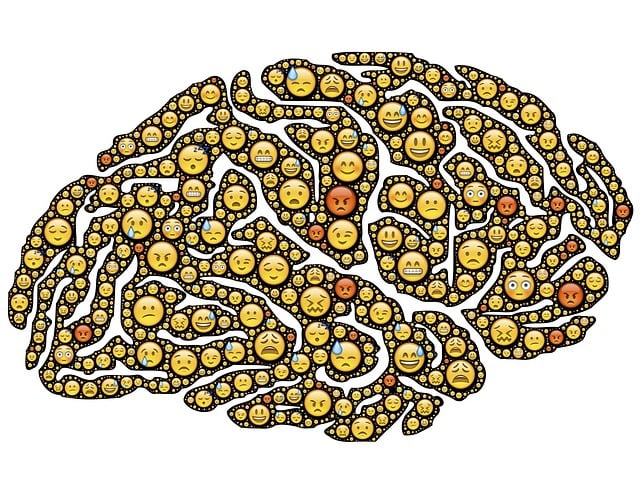Denver Acceptance and Commitment Therapy (ACT) is a powerful tool for achieving holistic mental wellness, teaching individuals to accept emotions, build resilience through value-driven actions, and enhance overall well-being. This approach, backed by scientific research, improves productivity, relationships, life satisfaction, and problem-solving skills while reducing community Mental Illness Stigma. ACT's emphasis on mindfulness, present-moment awareness, and emotional acceptance overcomes personal barriers related to trauma or emotional regulation, fostering mental health and resilience. By integrating ACT into daily practices, Denver's abundant therapy options offer a transformative path to improved mental well-being through compassionate self-care and effective stress management.
Mental wellness is a cornerstone of overall health, influencing our daily lives and interactions. Understanding mental wellness and its profound impact on well-being is essential. This article delves into strategies for promoting mental wellness, highlighting the power of Denver Acceptance and Commitment Therapy (ACT) as an effective approach. We explore personal barriers to mental health and provide practical strategies for integrating ACT techniques into everyday life, fostering a healthier, more fulfilling existence.
- Understanding Mental Wellness and Its Impact
- Denver Acceptance and Commitment Therapy (ACT): An Effective Approach
- Identifying Personal Barriers to Mental Health
- Strategies for Promoting Daily Mental Wellness
- Integrating ACT into Everyday Life
Understanding Mental Wellness and Its Impact

Understanding mental wellness is the first step towards fostering a healthier society. It involves recognizing and valuing our emotional, psychological, and social well-being. Mental wellness isn’t just the absence of mental illness; it’s about achieving a state of balance and contentment that allows us to navigate life’s challenges with resilience. In Denver, Acceptance and Commitment Therapy (ACT) has emerged as a powerful tool in promoting this balance by helping individuals accept their emotions while committing to actions aligned with their values, thereby enhancing overall well-being.
The impact of prioritizing mental wellness is profound. It contributes to improved productivity, better relationships, increased life satisfaction, and enhanced problem-solving skills. Moreover, effective mental wellness promotion strategies, including stress management techniques and confidence-boosting activities, play a crucial role in reducing the stigma surrounding mental illness. By integrating these practices into daily routines, individuals can not only improve their own mental health but also contribute to broader Mental Illness Stigma Reduction Efforts within the community.
Denver Acceptance and Commitment Therapy (ACT): An Effective Approach

Denver Acceptance and Commitment Therapy (ACT) has emerged as a powerful tool in promoting mental wellness. This therapeutic approach focuses on helping individuals accept their thoughts and emotions without judgment, while encouraging them to commit to actions that align with their personal values. ACT emphasizes self-care practices such as mindfulness, present-moment awareness, and defusion techniques, enabling people to live more fulfilling lives. By fostering a sense of psychological flexibility, Denver ACT helps clients navigate challenges with resilience, ultimately enhancing overall well-being.
For mental health professionals, integrating Denver ACT into their practice requires healthcare provider cultural competency training. Understanding the nuances of this therapy involves learning how it can be tailored to diverse populations and adapting risk management planning accordingly. This specialized training ensures that practitioners are equipped to deliver effective treatment while addressing potential risks associated with implementing new therapeutic approaches in their practices.
Identifying Personal Barriers to Mental Health

Many individuals struggle with mental health issues due to various personal barriers that can be both conscious and unconscious. Identifying these barriers is a crucial step in promoting mental wellness, especially in a city like Denver where access to diverse therapeutic approaches is abundant. One such evidence-based method is Acceptance and Commitment Therapy (ACT), which helps clients cultivate awareness, acceptance, and behavioral flexibility. By understanding personal barriers, whether they stem from past traumas, cognitive distortions, or difficulties with emotional regulation, individuals can begin to navigate a path towards resilience building.
Emotional intelligence plays a significant role in this process, as it enables one to recognize and manage their emotions effectively. Denver Acceptance and Commitment Therapy sessions can facilitate the development of emotional intelligence by teaching clients to observe and accept their feelings without judgment, thereby fostering healthier coping mechanisms. This, in turn, enhances overall mental wellness and allows individuals to lead more fulfilling lives, navigating challenges with greater ease and clarity.
Strategies for Promoting Daily Mental Wellness

Promoting daily mental wellness is a holistic process that involves cultivating positive thinking and resilience. One effective approach, backed by research in Denver Acceptance and Commitment Therapy (ACT), encourages individuals to accept their emotions rather than fighting them, fostering a sense of calm and clarity. This therapy emphasizes the importance of living in the present moment, a practice known as mindfulness, which can significantly reduce stress and anxiety.
Additionally, compassion cultivation practices play a pivotal role in enhancing mental wellness. Encouraging self-compassion and kindness towards others creates a supportive environment, reducing feelings of isolation and promoting a positive self-image. Organizations are increasingly hosting Stress Management Workshops to educate individuals on various techniques, such as deep breathing exercises and cognitive reframing, which help navigate life’s challenges with greater ease. These strategies collectively contribute to a healthier, more balanced mental state, ensuring individuals can lead fulfilling lives.
Integrating ACT into Everyday Life

Integrating Acceptance and Commitment Therapy (ACT) into everyday life can be a transformative experience, especially in Denver where access to mental wellness resources is abundant. ACT encourages individuals to accept their emotions and thoughts without judgment while committing to actions that align with personal values. This approach empowers folks to navigate challenges with greater resilience, enhancing overall well-being.
By adopting ACT principles, Denver residents can develop more effective stress reduction methods. For instance, instead of trying to avoid or suppress difficult feelings, individuals learn to observe them and continue with valued activities. This fosters emotional intelligence, a crucial component in managing mental health, particularly for professionals implementing Risk Management Planning for Mental Health Professionals.
Mental wellness is a cornerstone of overall well-being, and promoting it is essential in today’s fast-paced world. Through understanding the impact of mental health and identifying personal barriers, we can embrace effective strategies to enhance our daily lives. One proven approach is Denver Acceptance and Commitment Therapy (ACT), which encourages individuals to accept their emotions and commit to actions aligned with personal values. By integrating ACT into everyday routines, people can overcome challenges and cultivate a rich tapestry of mental wellness. Remember that fostering mental health is a journey, and with the right tools and mindset, folks can navigate life’s labyrinthine paths with resilience and grace.














